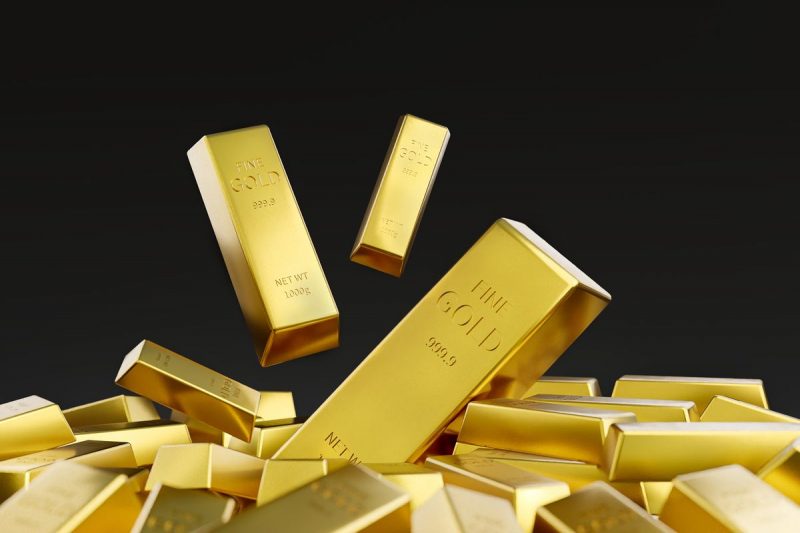The gold price has put on a show so far in 2023, climbing as high as US$2,052 on May 3, although it’s since moved back to hold above US$1,900.
The gold price saw support in March, when news of multiple banks in North America failing drove the yellow metal steeply upward, from US$1,834.60 on March 8 to US$1,915.90 March 13. The price continued to move higher through early May on economic concerns, including interest rate hikes.
However, the June Fed meeting left rates unchanged for the first time since the hikes began. This acted as a headwind for the gold price, which continued downwards to hit US$1,905 on June 30.
On July 12, the gold price shot up to nearly US$1,960 after the release of the latest US inflation data, which reported that inflation had slowed to 3 percent in June.
The five stocks below have seen the largest share price gains in the gold sector year-to-date on the TSX. The list was generated on July 11, 2023, using TradingView’s stock screener, and all companies listed had market caps above C$50 million at that time.
1. Calibre Mining (TSX:CXB)
Year-to-date gain: 74.73 percent; market cap: C$695.97 million; current share price: C$1.59
Calibre Mining is a gold mining company with producing and exploration assets and in Nicaragua and the US. In Nicaragua, the company is employing a hub and spoke strategy in Nicaragua; the primary hub is its Libertad mine and mill, which will be fed by the Limon mine and mill, Pavon mine and Eastern Borosi mine. As for the US, Calibre has the Pan mine and Gold Rock project in Nevada, as well as the Golden Eagle project in Washington state.
Calibre is focused on drilling and developing its assets in 2023, with a planned 60 kilometers and 40 kilometers of drilling in Nicaragua and the US, respectively.
Calibre’s share price stayed under C$1.15 for much of Q1, but began climbing in mid-March and kept moving upwards through mid-May, reflecting the gold price’s strong performance during this time. On March 15, the company announced that it had commenced production at the Pavon Central gold mine in January, and it was already delivering ore to the Libertad mill. Further production came online in April, when Calibre commenced mining at its Eastern Borosi mine.
The gold company’s share price peaked at C$1.76 on May 15, days after high grade gold assays from the Eastern Borosi mine were released, including a highlight of 1.3 meters containing 23.3 grams per metric ton (g/t) gold within 8.5 meters grading 12.9 g/t gold. Its most recent news came in late June, when it shared assays from the Pan gold mine.
1. Dundee Precious Metals (TSX:DPM)
Year-to-date gain: 39.49 percent; market cap: C$1.74 billion; current share price: C$9.22
Dundee Precious Metals is an international gold and copper mining company with two operating mines in Bulgaria. The long-running Chelopech underground gold-copper mine was acquired by Dundee in 2003 and has been modernized by the company, which says the mine is “recognized as a leader in digital innovation.” The company’s other mine is the Ada Tepe high grade open pit gold mine.
Dundee also has a portfolio of exploration projects, prospects and concessions in Serbia and Ecuador.
In Q1, Dundee announced that updated mineral resource estimates extended the life of mines for Ada Tepe and Chelopech to 2026 and 2031, respectively. The quarter also brought assays from diamond drilling at its Tierras Coloradas concessions in Ecuador on February 27, with a highlight of 17.3 meters grading 46.09 g/t gold, including 7.72 meters grading 79.54 g/t gold.
On April 10, Dundee released its Q1 results — including record production at Ada Tepe — and shared drill results from its Čoka Rakita prospect, which came as part of its “intensive 40,000-metre infill, extensional and target delineation drill program” at the site.
After staying elevated since mid-March, Dundee’s share price hit a year-to-date high of C$10.63 on May 9. The miner’s most recent news came on July 10, when it released its Q2 production results; the quarter saw 76,300 ounces of gold produced between its two mines.
3. Erdene Resource Development (TSX:ERD)
Year-to-date gain: 33.33 percent; market cap: C$132.59 million; current share price: C$0.38
Erdene Resource Development is a gold company exploring in its 170 square kilometer Khundii gold district along the Central Asian Orogenic belt in Southern Mongolia. The district includes Erdene’s Bayan Khundii gold project and Zuun Mod molybdenum-copper porphyry project, as well as numerous prospects.
In January, Erdene announced a strategic partnership with Mongolian Mining (OTC Pink:MOGLF,HKEX:0975). The partnership will see Mongolian Mining invest US$40 million over three stages in exchange for a 50 percent interest in Erdene’s subsidiary, Erdene Mongol. The funding will be used to develop and construct the Bayan Khundii project.
The company’s share price climbed into February, peaking at C$0.44 on February 14.
The second stage of the partnership, a US$5 million funding, was completed in May, and will be used to “complete the 2023 (feasibility study) and to undertake early construction works and exploration.” Once a construction decision has been made, Mongolian Mining will make the final investment of US$30 million.
Erdene began exploration at the Dark Horse gold prospect at Bayan Khundii in June. The program will include 1,000 meters of shallow drilling over 18 holes and a gradient array IP geophysical survey.
4. China Gold International Resources (TSX:CGG)
Year-to-date gain: 28.86 percent; market cap: C$1.95 billion; current share price: C$5.09
China Gold International Resources is a mining company operating its CSH gold mine in Inner Mongolia and its Jiama copper-gold mine in Tibet. The company is working to develop further underground resources at CSH to extend its mine life. In March, Jiama ran into complications when a tailings overflow halted operations.
The company’s share price started Q2 with a dramatic leap upwards after China Gold declared a special dividend on March 30. The dividend, which came packaged with the company’s 2022 year-end results and 2023 outlook, was US$0.37 per share — a significant payout compared to its share price that day of C$4.81. As the dividend was eligible to shareholders of record as of April 20, investors poured in over the following weeks, and China Gold’s share price stood at C$7.39 by April 18. While some sold after the date and the price dipped to C$6.60, it climbed again to reach a year-to-date peak of C$7.63 on May 4.
The next day, China Gold released an update on the tailings overflow at Jiama. According to the company, it “quickly contained and repaired the breach to ensure no damage to the environment or neighboring communities.” Production remains halted while the areas damaged by the incident undergo repairs, which are expected to be complete by the end of July. Following a subsequent safety assessment, the company will apply for government approval to resume production.
The company’s share price fell significantly after this news and continued downwards through the release of its Q1 2023 results, but it still remains up year-to-date.
5. Lundin Gold (TSX:LUG)
Year-to-date gain: 23.92 percent; market cap: C$3.94 billion; current share price: C$16.68
Lundin Gold owns the Fruta del Norte gold mine in Ecuador, which the company calls “one of the highest-grade, lowest-cost gold mines in the world.” The mine has been in operation since 2019 and has a mine life of 13 years. In addition to this operation, the company has 25 exploration concessions under two subsidiaries.
This year, Lundin Gold has been focused on expanding Fruta del Norte through a near-mine drilling program. On May 4, the gold mining company announced that the program had discovered three new targets, which have been dubbed Fruta del Norte South, Bonza Sur and Castillo, all of which are south of the mine; it plans to “accelerate the delineation of these new exploration opportunities” and increase the drill program by nearly 8,000 meters to do so.
The company’s share price had already been on an upward trajectory in Q2, and it climbed to a year-to-date high of C$19.24 on May 9.
At the end of May, Lundin Gold shared its greenhouse gas emissions numbers, with 0.06 metric tons of CO2 equivalent per ounce of gold produced, which the company said places it among the lowest in the industry based on available data. The company plans to be carbon neutral by 2030. Lundin Gold’s most recent news came on July 6, when it reported its Q2 production of 129,731 ounces of gold from Fruta del Norte.
Securities Disclosure: I, Lauren Kelly, hold no direct investment interest in any company mentioned in this article.

